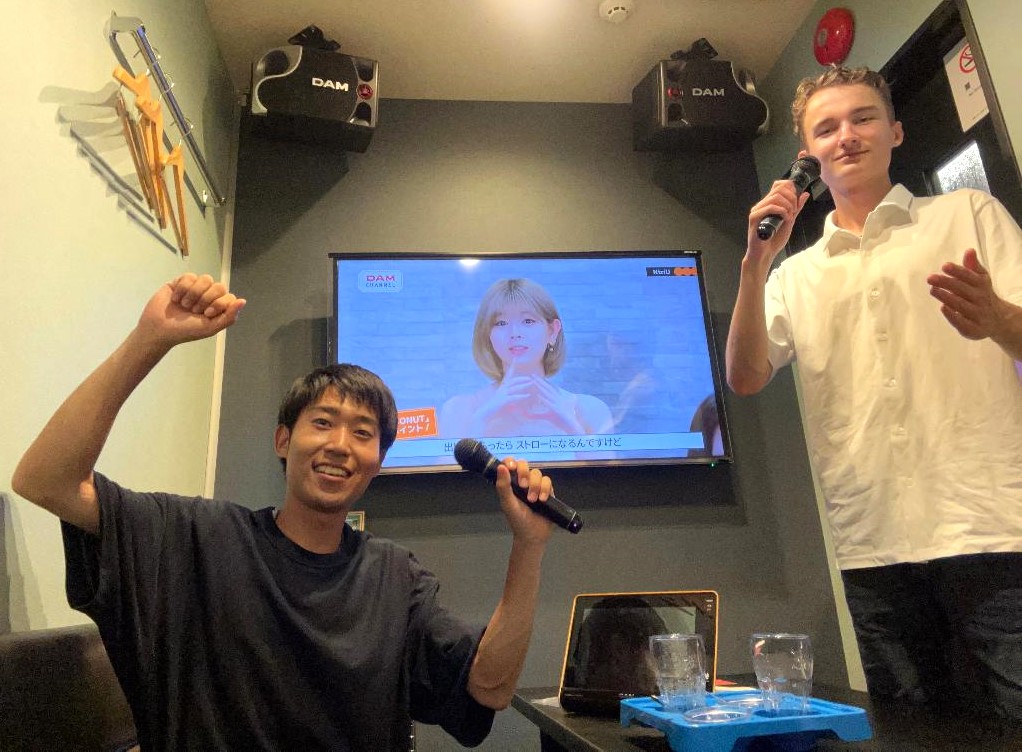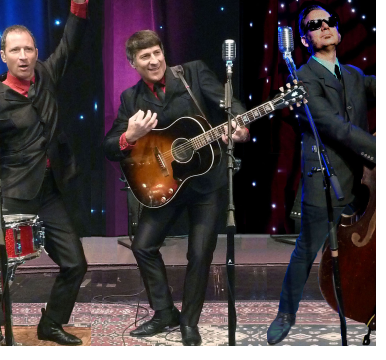This past summer, fellow columnist Kris Meltzer commented in his column about karaoke and asked if I would write about the history of how karaoke started in Japan. This column will discuss the evolution of karaoke and how it became a worldwide phenomenon.
After a little digging, I found that karaoke started in Kobe, Japan, in 1971 in a small bar. As legend has it, when a scheduled band didn’t show up to perform, the bar owner, in an attempt not to disappoint the customers who planned to attend the concert, decided to put on music and invited the customers to sing along. It was a huge hit, and soon became popular.
The first karaoke machine was called “Juke-8” and was made by the Japanese musician and inventor, Daisuke Inoue. As the story goes, he often played backup music in a club for businessmen who wanted to perform on stage. When he was asked to accompany a client on a trip, but couldn’t go, he made a taped recording of the music for the man to use. And Voilà, karaoke was born.
Sadly, Daisuke Inoue didn’t patent his invention. That was done later in 1975 by Filipino inventor Roberto del Rosario. He is credited with creating the Karaoke Sing-Along system, not so dissimilar from the U.S. NBC’s TV program “Sing Along with Mitch.”
When I arrived in Japan the first time in the late 1970s, I remember going to a club where they had a karaoke machine and people would clamor to go to the stage to belt out their favorite songs. I remember being amused by how passionate everyone was in singing and performing.
When I returned to Japan permanently in the late 1980s, karaoke had become so widespread that it was an established fixture in most bars and clubs, and karaoke boxes (places where you could rent a room to sing privately) had become commonplace.
As a young teacher in 1989 socializing with other teachers, I was always astounded at the transformation of my colleagues from their office or school persona to their karaoke alter ego that would rear itself after a couple of drinks.
The shyest, most reserved teachers would become different people when a microphone was put into their hands and alcohol was pulsing through their bodies. They would gesticulate, and gesture wildly while performing their favorite karaoke song -- singing their little hearts out.
In the early years of karaoke in Japan, it resembled U.S. karaoke today … like an open mic night where people could request a song and sing publicly. While these places still exist, vestiges of the Showa Era (1926-1989), they are not as popular today as they once were. Partly because many Snack Bars, once a fixture of Japanese nightlife during the Bubble-Boom Economy, have become less common.
These were small bars that would often only seat a handful of people where salaried men would become regular customers and even “keep” a bottle with their name on it to drink with colleagues after work. These were/are usually run by an older woman called a “Mama-san” and she would often hire several younger women to pour drinks for the men using a distinctive pricing system.
“Snack bars” are a cheaper, more budget conscious version of the pricier “hostess clubs” that were also popular during the Showa Era.
Today, it is far more popular for people to go to actual Karaoke Boxes where many small, private rooms are available for groups of people to sing privately with each other. Even someone alone can rent a room for an hour or two to sing in the largely soundproof room. Food and drinks are available from a menu, so it is like having a private party room to enjoy singing with friends and colleagues.
I know my university students will often times go with friends and classmates to drink and sing for entertainment. Also, retired people will join karaoke groups where they meet and rent a room to sing on a weekly or monthly basis as a social diversion.
When I first started living in Japan in the late 80s, it became clear to me rather quickly that I needed to have a couple of go-to songs in my repertoire when out with colleagues to be able to sing. My favorite karaoke song in those days was “Love me Tender” by Elvis Presley, and “Let it Be” by the Beatles. I also learned a song in Japanese to sing during my early days in Japan, but I have forgotten the name of it, believe it or not.
Thankfully, in my case, the reverb is so strong on these machines that even if you are off tune or can’t carry a note, it is difficult to tell!
Karaoke boxes have stream-lined their offerings making it very simple to reserve a room, no matter how many are in your group or what kind of music or songs you want to sing. These establishments feature a reception counter where customers sign in. Often a first-time customer will be asked to fill out some sort of registration and show a photo ID.
Rooms vary in size, so if you are alone or with just one other person, you can reserve a small room. If it is a big group, then a large room can be reserved. Usually, they like to know an estimated amount of time you plan to be there, and you can order the initial food and drinks to be served in your reserved room.
Pricing and charges depend upon the time of day and day of week. Weekdays are cheaper than a weekend night, for example. They have a menu of services and this can include an “all you can drink” option for either alcoholic or non-alcoholic beverages, or an a la carte option where people just order what they want.
Of course, the real money is made from the food and drinks, so some establishments have a policy that each customer must order something to eat and a drink up front.
During a peak period (like a national holiday or a Saturday night) for an evening of singing, eating and drinking, a customer can expect to spend anywhere from 2,000 to 4,000 yen ($15-$30 at the current exchange rate).
While karaoke is still quite popular as a social activity, I haven’t done it in over 20 years. Not because I dislike it, necessarily, but just because my group of friends currently doesn’t really sing karaoke and I am not a big enough afficionado to go by myself. But if someone suggested going, I would be open to it … sort of like bowling, while it is not something I do frequently, when I have an opportunity to go bowling, I enjoy the experience, even though I bowl about as well as I sing karaoke!







